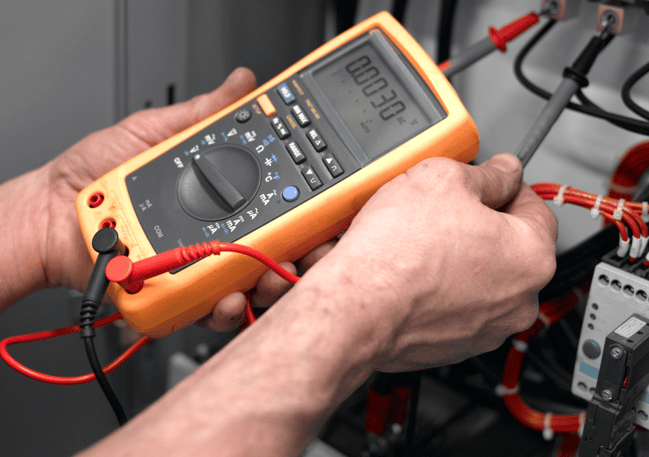
Portable Appliance Testing (PAT) is a legal requirement in the UK for any business or public organisation that uses ‘portable electrical appliances’. This catchall category covers any mains-powered electrical device that is hand-held or can be moved whilst connected to an electric source – so the PAT test legal requirements cover fridges, kettles, hair dryers, TVs, phone chargers, power leads, extension leads, computer monitors, and so on.
With such a wide range of appliances covered by the legal requirements, almost all businesses need to be aware of what PAT testing is, why it’s important, and how to remain compliant – including landlords of domestic rental properties.
What Is PAT Testing And How Often Should PAT Testing Be Done?
PAT testing involves a thorough examination of electrical equipment and appliances, as well as any flexible cables and earthing/grounding cables (if appropriate) to ensure that they are safe to use without risking an electrical accident.
A full PAT test includes both visual inspections and electronic tests, in order to identify any potential safety hazards, such as faulty insulation and frayed wires. There isn’t a set legal frequency for inspection and testing – this very much depends on the type of appliance, its usage frequency, and the environment it is used in. Low risk appliances, such as office desk lamps, will need less frequent testing than high risk power tools used every day in a workshop, for example.
The legal obligation falls on the business owner to ensure that their appliances are safe through sufficient PAT testing at the appropriate intervals – this HSE publication on maintaining portable electrical equipment may be useful in establishing a schedule for your organisation.
PAT testing is important because it helps reduce the risk of electrical fires and electrocution injuries arising from damaged and faulty equipment, and there are legal penalties for not applying to the laws. Businesses deemed to be non-compliant can be charged and fined under the Health and Safety at Work Act 1974.
But Have Any Businesses Actually Been Fined For Not PAT Testing Their Appliances?
Yes. Prosecutions are rare but they do happen. For instance, Cineworld in Manchester was successfully prosecuted in 2015 and fined £9,500 after two employees were electrocuted by a defective popcorn machine that hadn’t received a PAT test. General HSE prosecutions for faulty electrical equipment under the Electricity at Work Regulations 1989 are more common – with some publicly available reports of small businesses receiving fines for breaches and non-compliance.
Improve Workplace Electrical Safety Through Regular PAT Testing
HSE prosecutions may not be a virulent risk for small businesses that use portable appliances, but PAT testing does fulfil an important ethical and safety concern. With over 1,000 workplace accidents involving electric shocks and burns reported to the HSE each year, it’s essential for all relevant devices to be adequately tested in order to guarantee safety for employees and customers.
At Lowe & Oliver, we offer a fast and cost-effective PAT testing service for all commercial and public organisations, giving you peace of mind in the security and safety of your electrical devices. For more information, please call 01865 411319 today, or click here to request a call back.
Image Source: Canva




